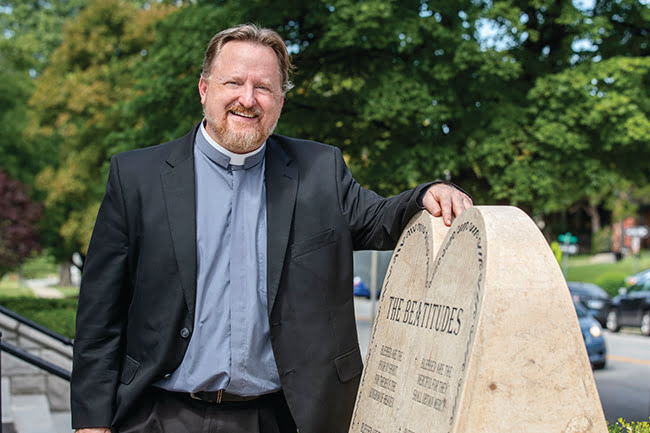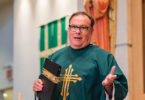
by Deacon Bill Scholl
“OK, kids, for this class we are going to play a game,” I said to St. John’s sixth-grade class this Lent.
With masked face and freshly Purelled hands, I gave them each a card face down. “Don’t turn the card over yet,” I told them as they gazed upon the same blue arabesque backs. “These cards represent the blessings of life that God gives you.”
I was invited to kick off a special project in which the kids were going to study and advocate for the homeless in their community of Lawrence, and this game was designed to get them thinking about the advantages and disadvantages we are born into.
“OK, turn your cards over. If you have a face card, you are royalty, go to this side of the room. All you others . . . well, you’re the lower cards; go to this side.”
I announce the prizes: movie passes, restaurant gift cards, a big bag of candy. Enthusiasm for this game suddenly improves. I distribute to those who received lower cards two Starbursts each and explain this is currency.
The rules are simple: They are to try and get 20 Starbursts to purchase one of three prizes by persuading the others to give them enough; however, there is no sharing of the prize. (How do you share your house with the homeless?)
I then turn to the royalty. They get a box of Starbursts, 23 candies in each.
The trading game ensues to predictable results. Those who start with the most get the prizes and share whatever they have left over with those who don’t. Some lower card kids hustle, but don’t quite make it, while many just give up.
We debrief on what happened and how it makes them feel. Some feel bad because they started off with so much, compared to others. Those who received lower cards all feel frustrated, and many gave up so someone else from their group could have a chance.
We talk about how the homeless in Lawrence often feel that way. I share stories of conversations I’ve had with them: “You think it’s temporary, but you learn that once you go under the bridge, you don’t come back,” and “In the mornings, people just step over me like I am a piece of trash.”
We talk about how often we like to think the homeless are there because of bad choices, but maybe there is more to it. Maybe they feel like the game is stacked against them and they just can’t win.
I then have them hold their cards up to the sky as I ask, “What do you see?”
They, of course, see their numbered or face card. “Now as God looks on from heaven, what does he see?” He sees the cards are all the same. He loves us all.
“So what do you suppose God wants of us in this game?” A quiet girl responds, “To make it fair,” to nodding assent of the group. “And how do we make it fair?”
Change the game.






